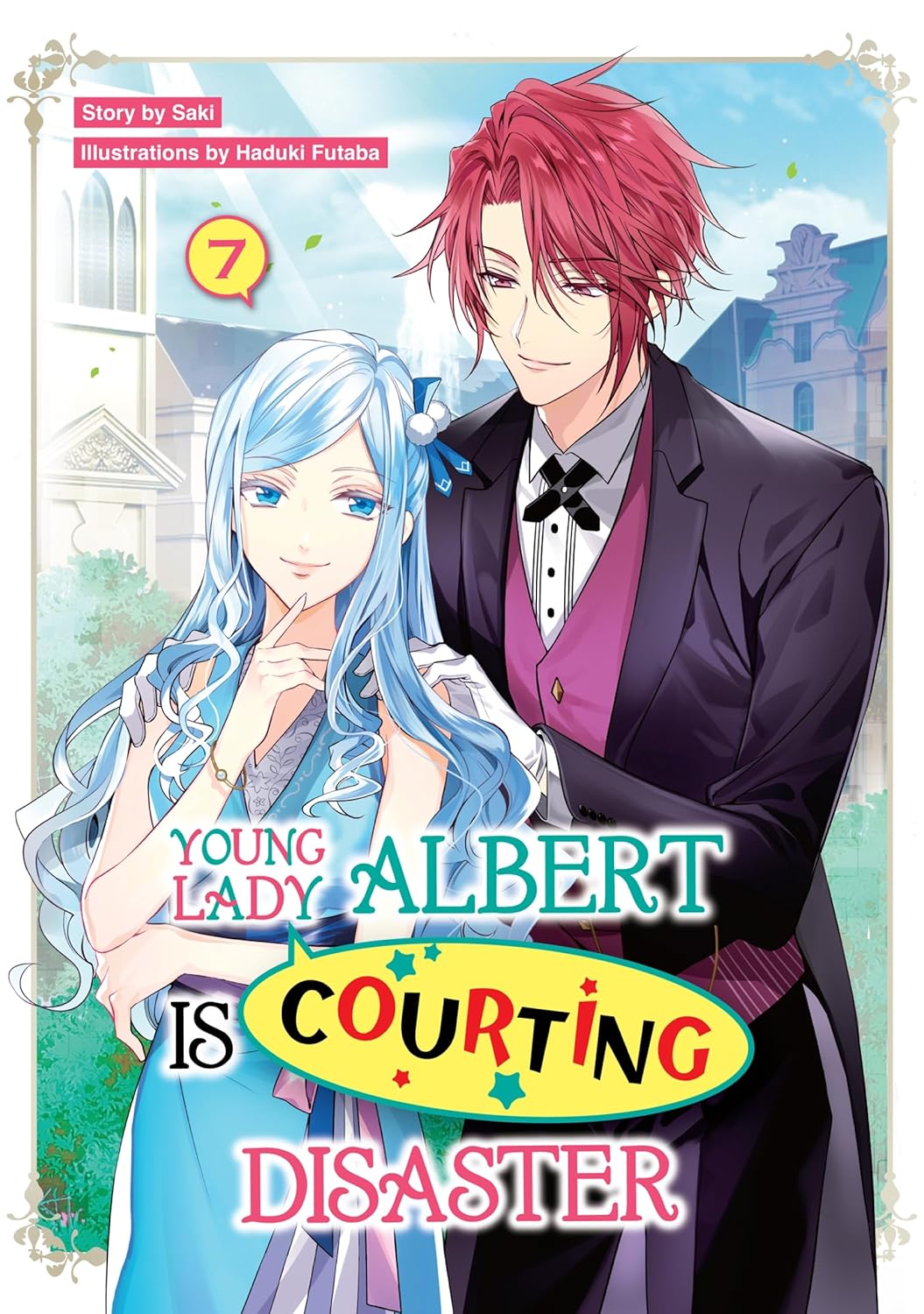By Saki and Haduki Futaba. Released in Japan as “Albert-ke no Reijō wa Botsuraku o Goshomō Desu” by Kadokawa Beans Bunko. Released in North America by J-Novel Heart. Translated by Ray Krycki.
Sometimes tropes are so omnipresent that I automatically assume they’ll be there, and I get tripped up when they don’t actually happen. This volume kicks off its plot when a young girl shows up, with red hair the color of Adi’s, and says that he’s her father. Naturally, my first thought was: girl from the future. This is despite the fact that she clearly doesn’t recognize Mary, Alicia, o the rest of the cast. But no, there is no time travel here. Instead we are once again dealing with a more common light novel subtrope, which is the idea that if you’re going to be a noble, you’d damn well better be a GOOD noble who cares about others. The actual backstory for this girl is more down to earth – she’s from a country that doesn’t give a crap about its poor, and it broke her family apart. This infuriates Mary and Alicia, who by their nature are shiny, honest people and can’t stand the idea of abusing power. Even if it’s justified in their head.
The other major plotline in this volume is that Mary Albert is pregnant. This is a happy surprise for her and Adi, but it’s also something they want to keep under wraps for the time being, as there are certain people who will make far too big a deal out of it. Like, new national holiday big. Fortunately, this strange little girl arrives and proceeds to distract everyone as they try to figure out whose child she is (I appreciate the fact that everyone knows Adi is so in love with mary that there’s no way it’s his secret child). Unfortunately, when they find out her exact circumstances, a field trip is in order. Which also consists of her brothers. And Patrick and Alicia. And Parfette and Gainas. And they all converge on one unfortunate lord who believes wholeheartedly that breeding is everything and poor people deserve to be abused. The odd thing is that he believes it to an extreme degree, rather than just being plain old evil about everything.
One thing I really appreciate about Mary Albert is that, despite being reincarnated in an otome game, etcetc., and being generally a very nice person, she is allowed to *behave* like an arrogant villainess, snikping and grumbling at people and acting like she’s going to let out with an OHOHOHOHOHO any moment – though she never does so. In a world with ditzy villainesses, acting villainesses, villainesses with PTSD, it’s nice to see one who doesn’t have a complete personality change even as she plots her doom. Actually, the plotting her doom thing seems to have gone well and truly tits up in this book, as her brothers renounce their claim to the head of the family, leaving it for her. This is unsurprising, but I think she’ll do a good job. I do appreciate how, even now that we’re close to the end, she still cares a lot about what happens to her fantasy fried chicken restaurants, and worries now that she’s given it to twisted friend 31 and twisted friend #2. (I worry as well.)
The next book is the last. I’ll miss this series, one of the first villainess books to come out in Japan. It was overshadowed by Bakarina, but Mary Albert accomplished a lot more. I wish her and her husband and her second and third wives well. What, they’re not her wives? I feel evidence suggests otherwise.


Speak Your Mind